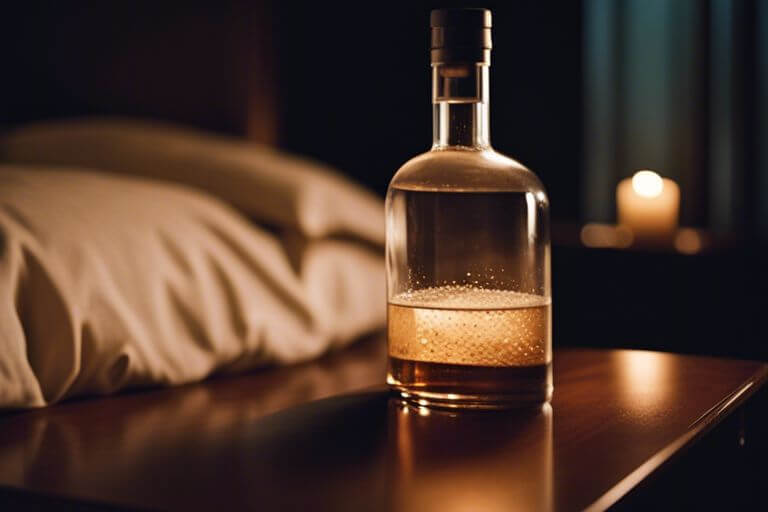The Truth About Alcohol and Sleep – Uncovering the Impact on Rest
Just how much does alcohol affect your sleep? The answer may surprise you. While many believe a nightcap helps with relaxation, alcohol actually disrupts the sleep cycle and can lead to poor-quality rest. Understanding the impact of alcohol on sleep is crucial for maintaining a healthy lifestyle. In this post, we explore into the dangers of alcohol consumption before bedtime and explore how it can negatively affect your overall well-being.
The Science of Sleep
Understanding Sleep Cycles
Your body goes through various stages of sleep in a cyclical pattern known as sleep cycles. Each cycle includes different phases such as light sleep, deep sleep, and REM (rapid eye movement) sleep. Understanding these cycles is crucial in realizing the importance of quality rest for overall well-being.
The Role of Alcohol in Sleep Disruption
RoleAlcohol consumption can significantly impact your sleep quality and disrupt the natural sleep cycles. While it may help you fall asleep faster, alcohol actually decreases the overall quality of your rest. It suppresses REM sleep, the stage vital for memory consolidation and cognitive function, leading to fragmented and shallow sleep.
Science shows that alcohol affects the production of adenosine, a chemical that promotes sleep regulation. This disruption can result in insomnia, headaches, and increased daytime fatigue. It is important to be aware of these negative effects and consider the long-term impact of alcohol consumption on your sleep quality.
The Short-Term Effects of Alcohol on Sleep
The Immediate Impact on Sleep Architecture
Short-term consumption of alcohol can have a significant impact on the architecture of your sleep. While it may help you fall asleep faster, it also disrupts the normal progression of sleep stages. Alcohol can suppress REM (rapid eye movement) sleep in the first half of the night, leading to fragmented sleep patterns and a decrease in overall sleep quality.
Sleep Quality vs. Sleep Quantity
With alcohol consumption, there is a common misconception that more alcohol leads to better sleep. However, the reality is that while alcohol may increase total sleep time, it severely compromises sleep quality. This can result in feeling more fatigued and less restored upon waking, despite having spent more time in bed.
Quantity is not always indicative of quality when it comes to sleep. It is crucial to prioritize sleep quality over sleep quantity to ensure optimal rest and recovery for your body and mind. Pay attention to how alcohol affects your sleep patterns and consider making adjustments to support a more restful night’s sleep.
Long-Term Consequences of Alcohol on Sleep Patterns
Chronic Changes to Sleep Health
One of the most significant long-term consequences of alcohol consumption on sleep patterns is the chronic changes it can induce in sleep health. Regular alcohol intake can disrupt the natural sleep-wake cycle and lead to difficulties falling and staying asleep, resulting in poor sleep quality over time.
The Risk of Developing Sleep Disorders
Consequences of excessive alcohol consumption extend to an increased risk of developing sleep disorders. Alcoholism is closely associated with conditions such as insomnia, sleep apnea, and restless leg syndrome. These sleep disorders not only disrupt restorative sleep but can also have serious implications on overall health and well-being.
Disorders caused by alcohol can exacerbate existing mental health issues, impact daytime functioning, and increase the risk of accidents and injuries due to sleep deprivation. Addressing and treating alcohol-related sleep disorders is crucial for restoring healthy sleep patterns and improving overall quality of life.
Strategies for Improving Sleep While Consuming Alcohol
Best Practices for Alcohol Consumption
Many individuals enjoy a drink or two in the evening, but it’s crucial to do so responsibly to minimize the impact on your sleep quality. Best practices include limiting alcohol intake to moderate levels, opting for lower alcohol content beverages, and avoiding consumption within a few hours of bedtime. Additionally, staying hydrated and having a meal before drinking can help reduce the effects of alcohol on your sleep cycles.
Alternatives to Alcohol Before Bedtime
One effective way to improve your sleep while still winding down in the evening is to explore alternatives to alcohol. Instead of reaching for a nightcap, consider relaxing activities like meditation, herbal tea, or a warm bath to help you unwind before bedtime. These alternatives can promote relaxation without the negative impact that alcohol can have on your sleep quality.
Before venturing into your usual habit of reaching for a nightcap, consider the impact it may have on your sleep. Drinking alcohol before bed can disrupt your sleep patterns, leading to fragmented and poor-quality rest. By exploring alternative relaxation methods, you can create a bedtime routine that supports deep and restorative sleep.
Final Words
As a reminder, the impact of alcohol on sleep is significant and can have long-lasting effects on both the quality and quantity of rest. Understanding the truth about how alcohol affects the different stages of sleep can empower individuals to make more informed decisions about their alcohol consumption and prioritize their sleep health. By uncovering the relationship between alcohol and sleep, we can work towards improving our overall well-being and achieving a more restful night’s sleep. It is crucial to prioritize healthy sleep habits and create a relaxing bedtime routine to ensure that alcohol does not interfere with our body’s natural sleep processes. Be mindful of, the key to restful sleep is a balanced lifestyle and making informed choices about alcohol consumption.

